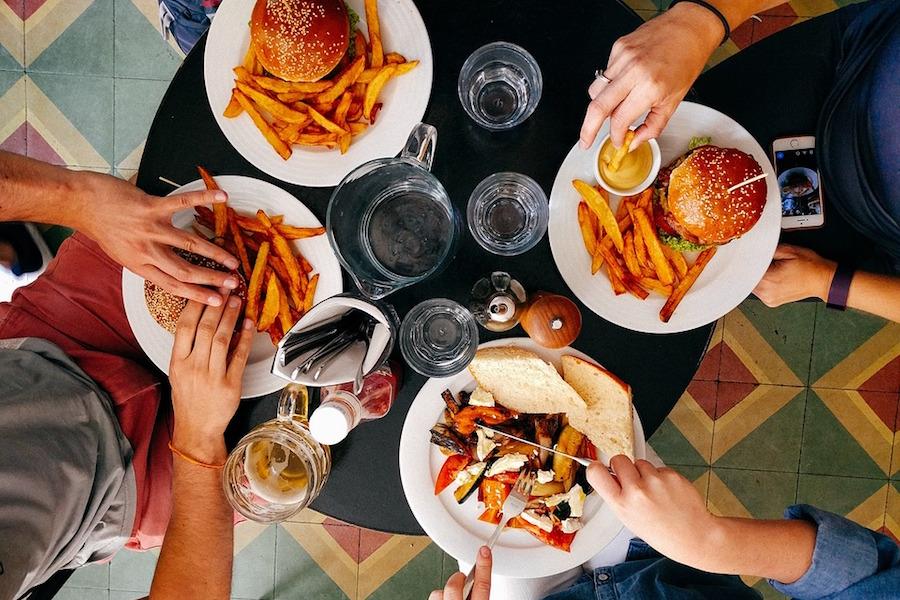During pregnancy, it is particularly important that you avoid food that might contain parasites and bacteria. This applies primarily to listeria bacteria and the toxoplasma parasites, both of which can be harmful for the growing fetus (read more in the article about Listeria).
For this reason, you must completely refrain from the following:
- raw meat
- raw minced meat
- unpasteurized milk
- fresh cream cheese made from unpasteurized milk
- blue cheeses and washed-rind cheeses. Also cheese made from pasteurized milk, for example brie, gorgonzola, chèvre, vacherol and taleggio
- refrigerated pre-packaged mixed salads, sandwiches and sauces that contain smoked/cured fish, blue cheese and washed-rind cheese, or cold cuts
You should also refrain from:
- Alcohol—since it passes to your baby via the placenta
- Liver—rich in vitamin A which, in high doses, can harm your baby Ginseng products—since they can have an effect on estrogen levels in the body
You should minimize your intake of:
- Coffee and black tea—contain caffeine which, in high doses (more than 300 milligram), can increase the risk of a miscarriage. However, it is likely that more than 200 milligrams can have an effect on the baby’s birth weight. Therefore, limit your intake to no more than 200 milligrams of caffeine a day while you are pregnant. That corresponds to either two to three cups of coffee (1.5 dl or 5 oz per cup) or four cups of tea (2 dl or 7 oz per cup). Many types of cola soft drinks contain caffeine. Some medication can contain caffeine, and is listed on the carton.
- Licorice—eating more than 50 gr a day can disturb your sodium balance
- Candy and soft drinks—contain only empty calories and few/no nutrients; should therefore not be consumed in large quantities
Be careful with:
- Dried, cold-smoked or cured meat, such as parma ham or salami. Freeze for three days before eating.
- Minced venison and meat that was near the wound where the bullet entered (venison can contain high levels of lead if lead ammunition was used for hunting). Other wild game meat is fine.
- Non-commercially fished fish from the Baltic Sea and small lakes—may contain toxins.
- Dietary supplements, herbal products, herbal teas, herbal remedies and traditional plant-based medicines—since it is often difficult to know if these may be harmful for the baby
- Vitamin supplements—follow the instructions and avoid overdosing
OK to eat:
- All hard cheese such as prästost, herrgård, parmesan, gruyère, manchego and emmenthaler
- Processed cheese/soft cheese in a tube or carton.
- Pre-packaged halloumi, mozzarella and feta cheese or unpackaged feta cheese that is pasteurized
- Cheese spreads in cartons such as cream cheese, ricotta and mascarpone.
If you want to eat refrigerated processed food without heating the food, the following can help to reduce the risk of getting sick:
- Refrigerator—store refrigerated items cold, at +4°C (+39°F) in the refrigerator
- Sliced cold cuts and pâté—Always check the packaging date. Consume products that have been packaged for no more than one week.
- Store-bought cured and smoked fish—Always check the packaging date. Consume products that have been packaged for no more than one week.
- Thawed frozen vegetables—Store in the refrigerator. Consume within a few days.
- Sliced melon—Store in the refrigerator. Consume the melon within a few days.
Large quantities of ginger Danish, Norwegian and Finnish National Food Agencies recommend that pregnant women should refrain from eating or drinking large quantities of ginger, such as ginger shots, tea made from ginger powder or dietary supplements containing ginger. The reason is that there is a likelihood that high doses of ginger can cause a miscarriage. The Swedish National Food Agency has no specific recommendation regarding ginger at this time, but recommends caution with dietary supplements during pregnancy, which includes supplements containing ginger. We will assess whether large quantities of ginger pose a risk for pregnant women and, based on that, decide if more specific recommendations are needed.
Information from the Swedish National Food Agency
